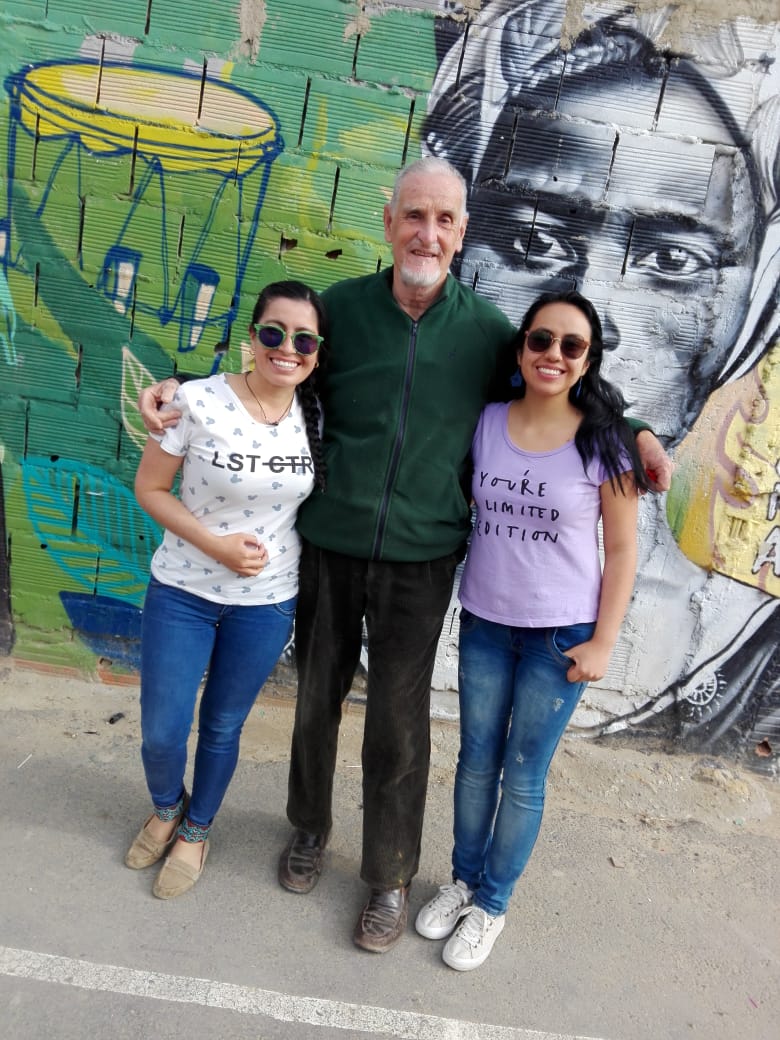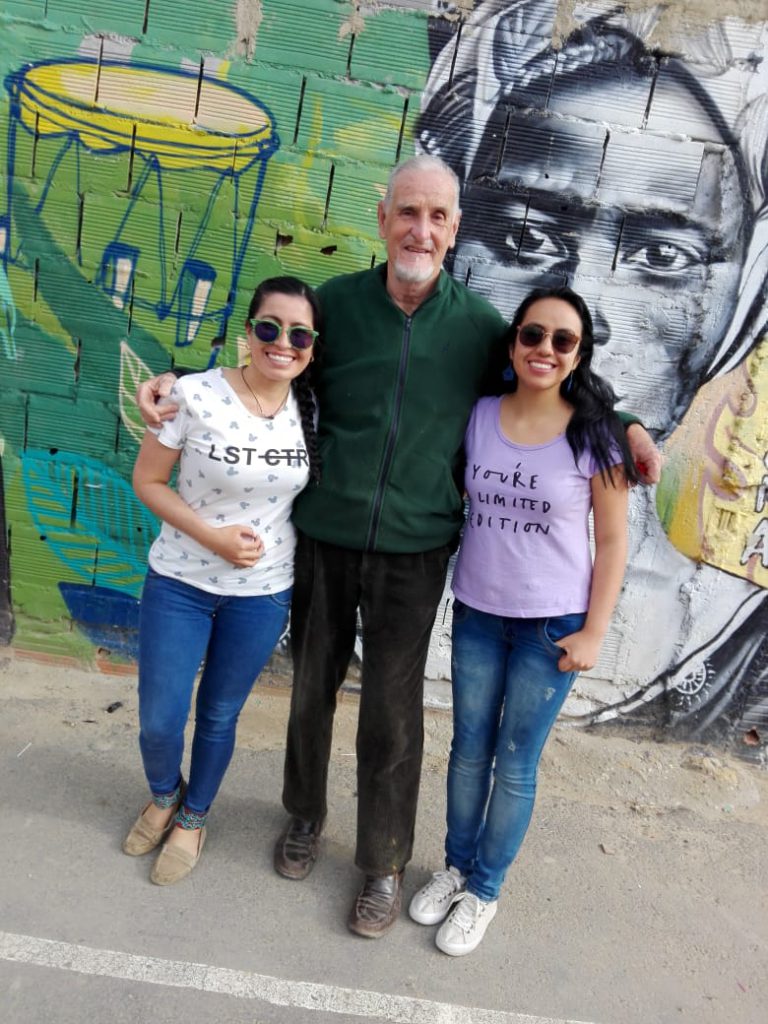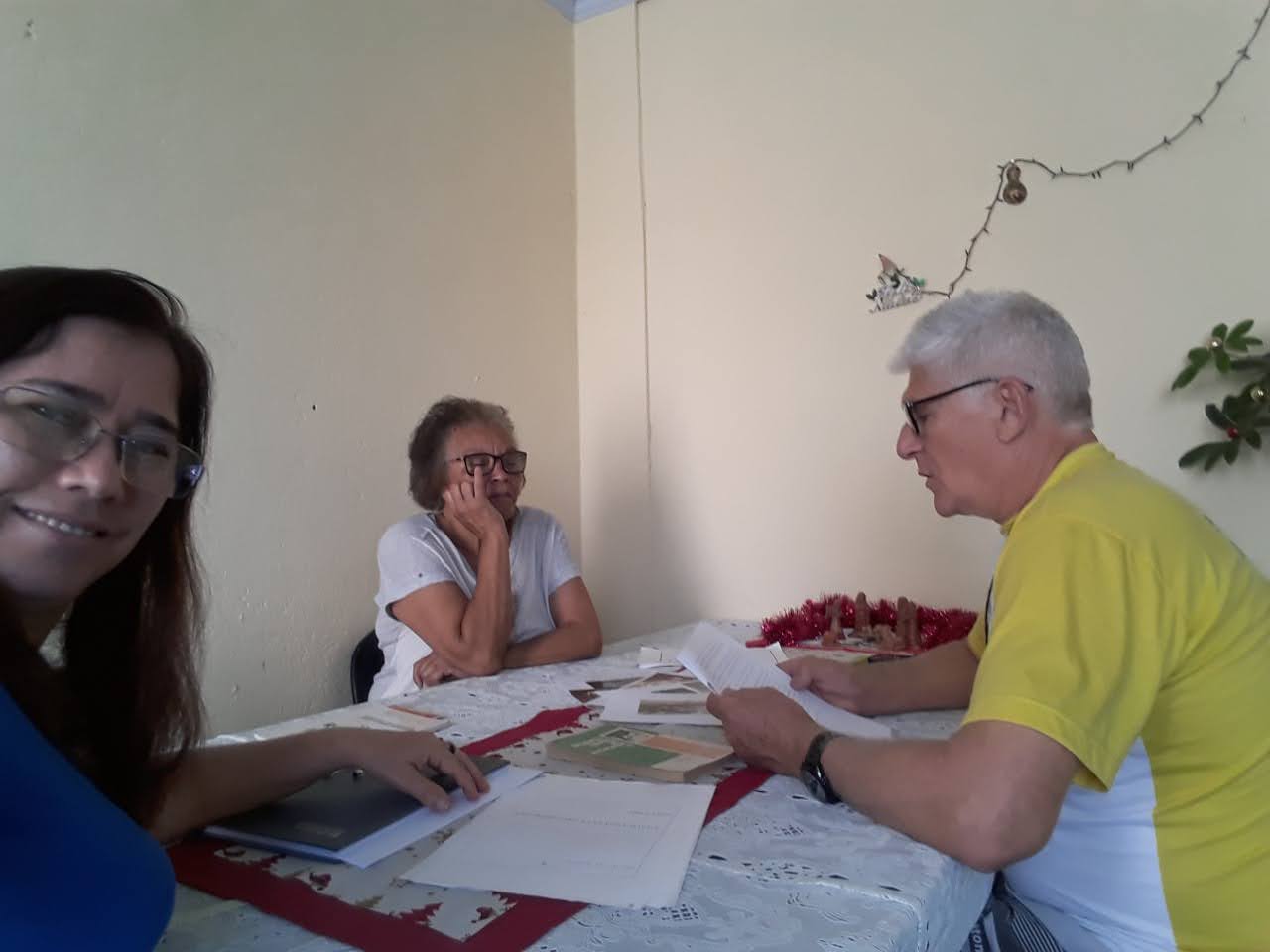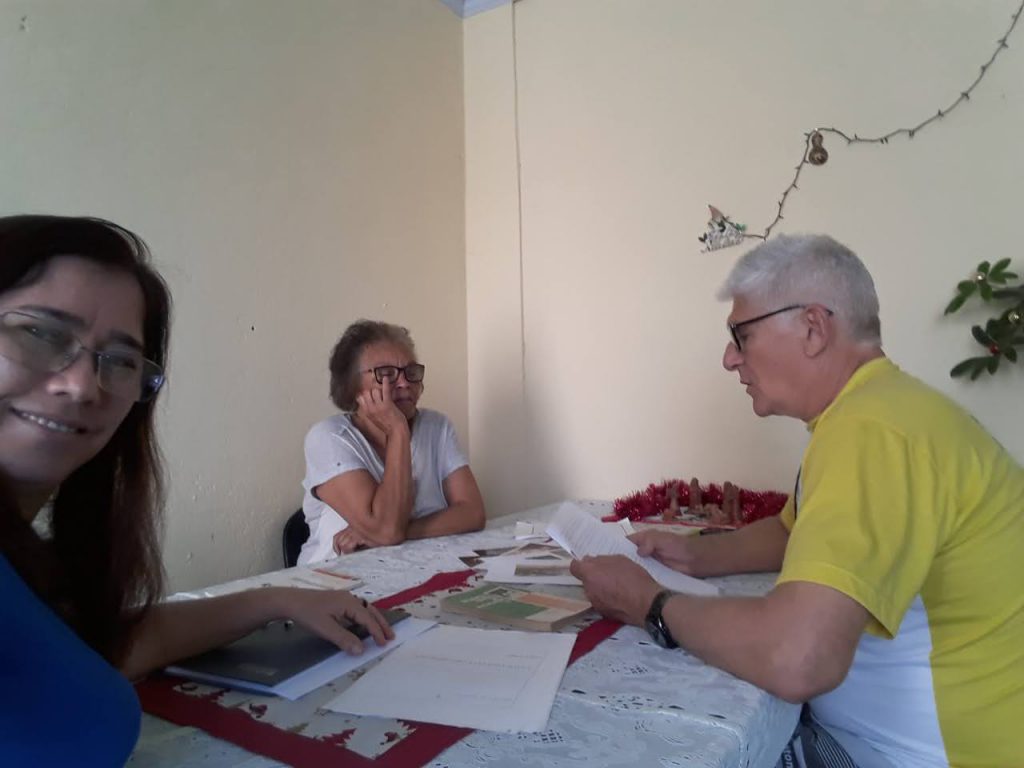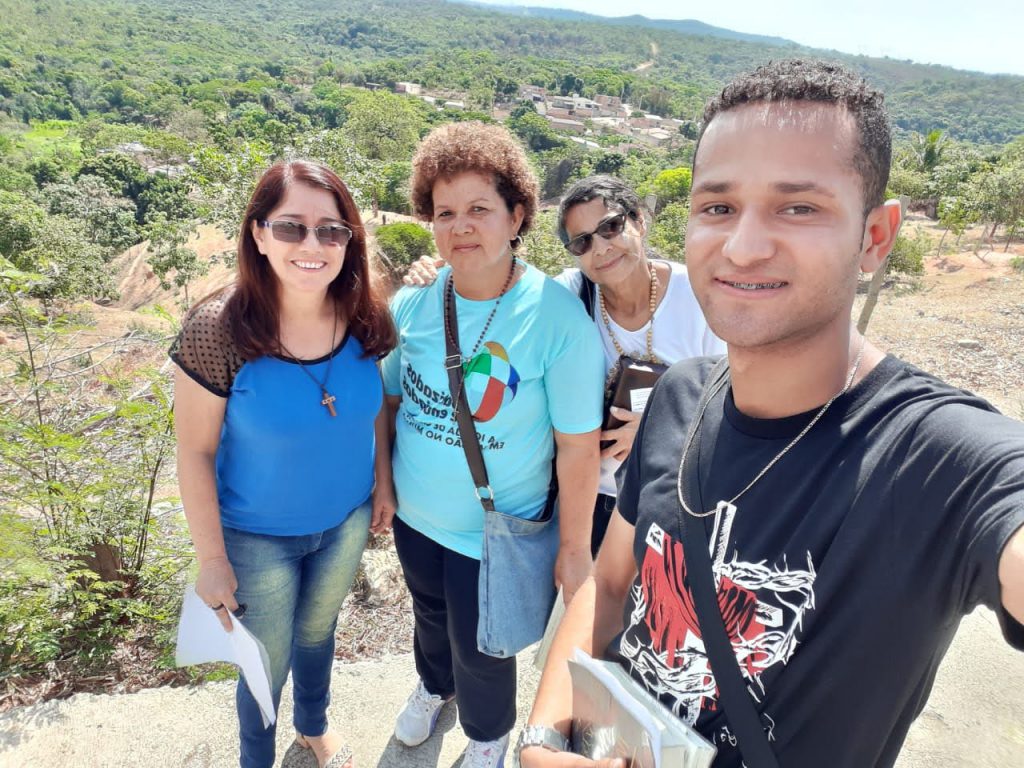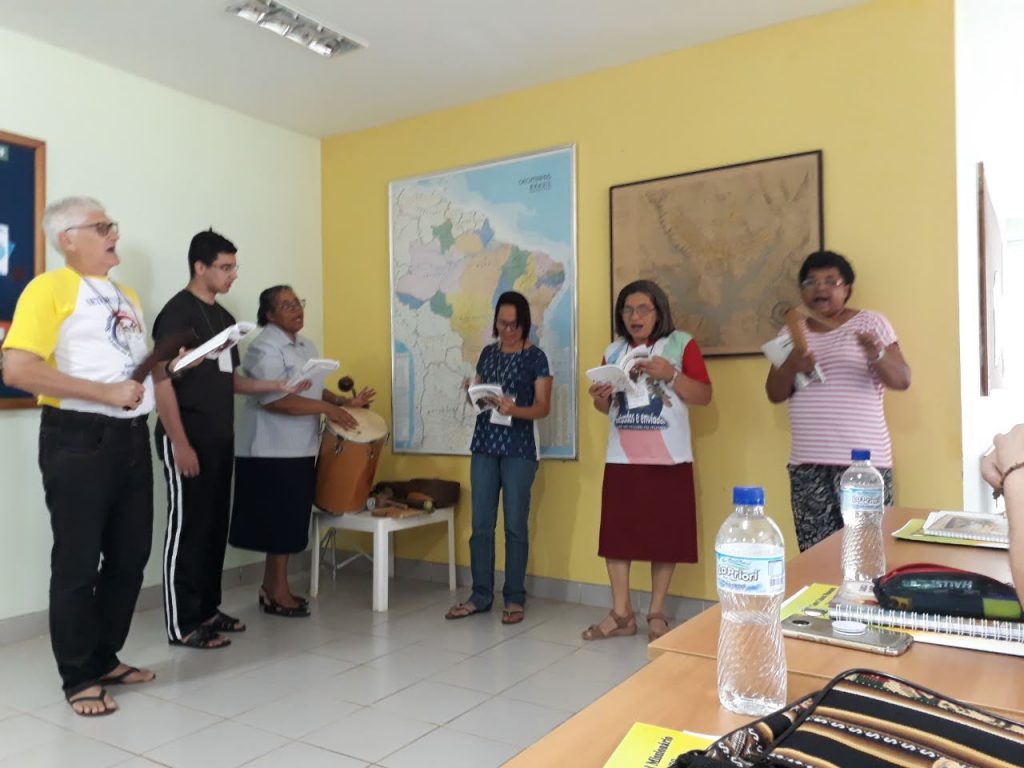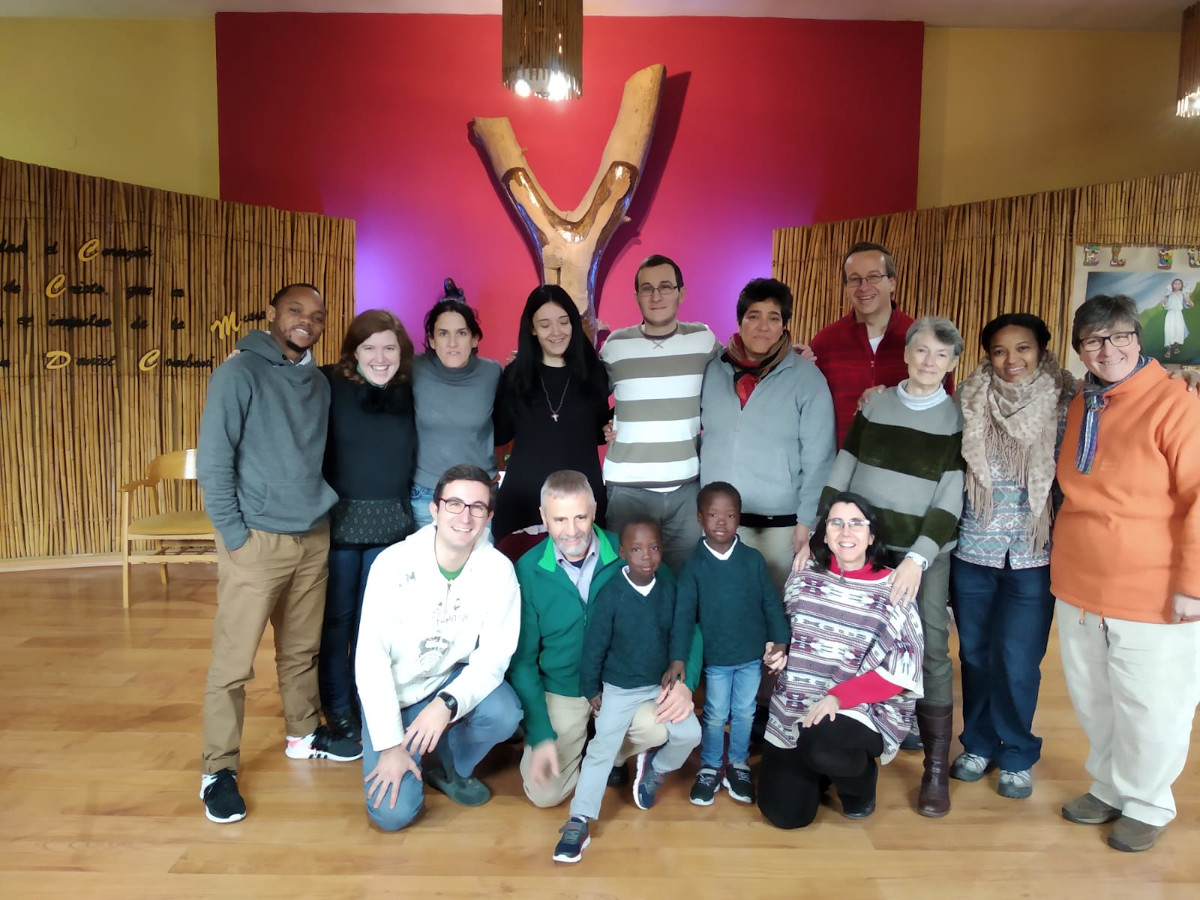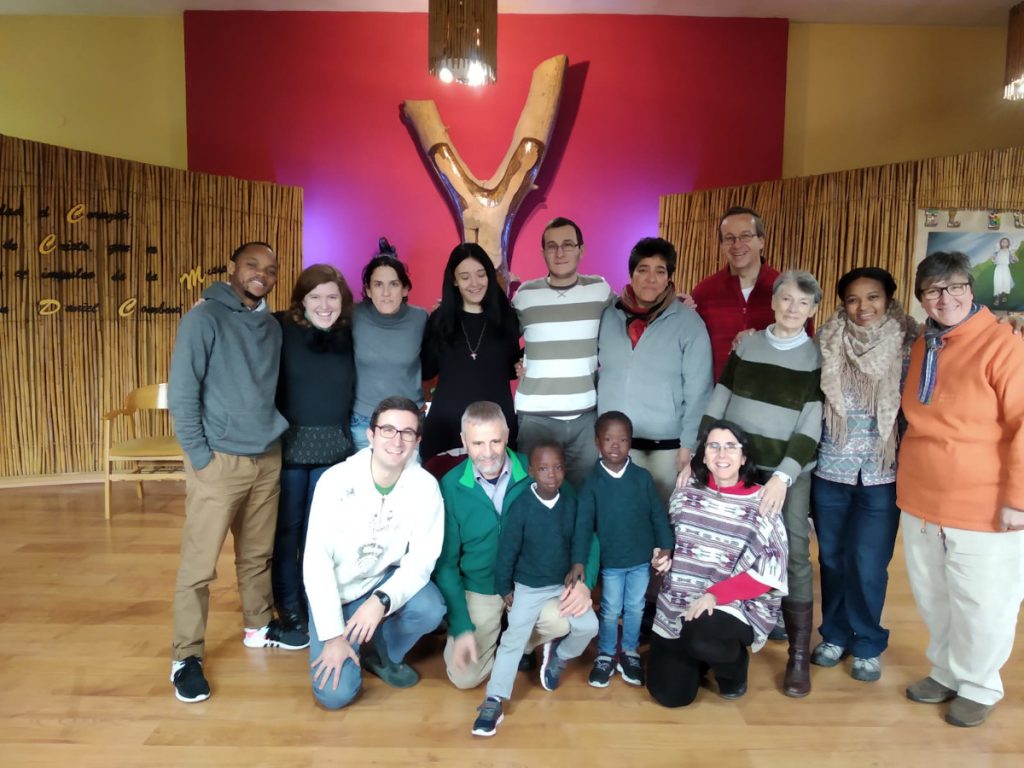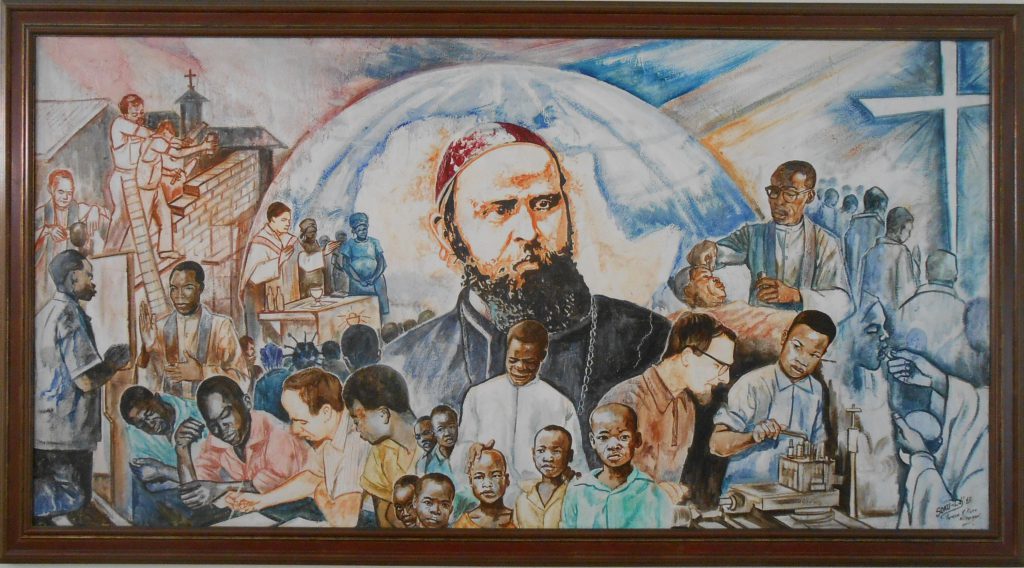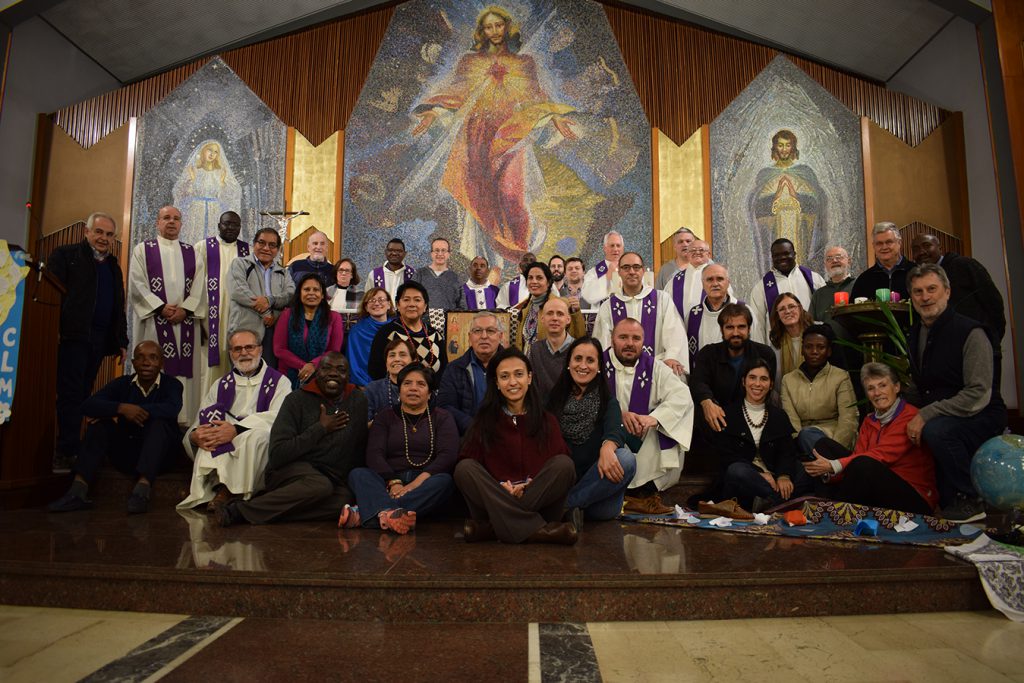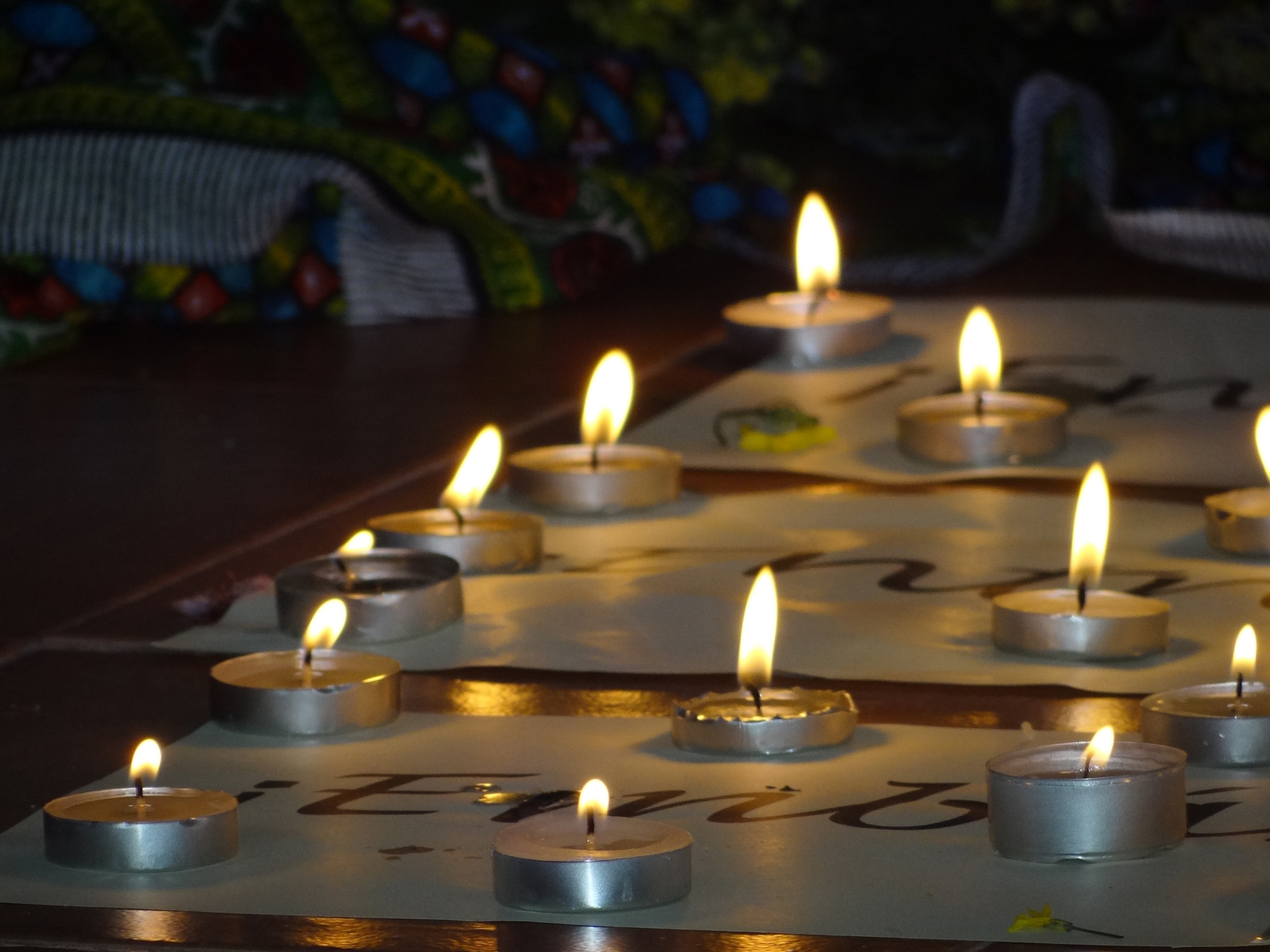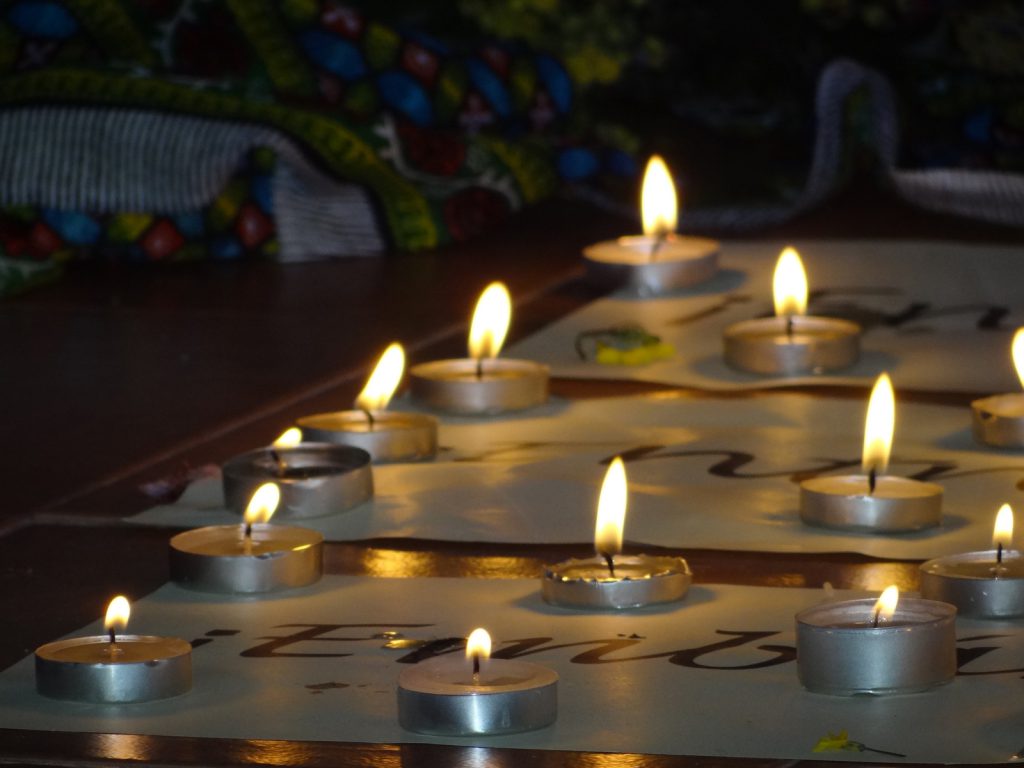The Laity and Ministeriality
We shall attempt to make a reflection on ministeriality from a lay perspective, especially from the point of view of the Comboni missionary vocation. However, before going into these ministries and services from the point of view of the faith, I think it is important to view the framework of the topic.
Our lives move in a certain direction once we have a personal encounter with Jesus of Nazareth. We share society with many men and women of good will. All of them have their own values that direct their actions and life choices. For us there exists a “before” and an “after” having come to know Jesus. Just like the first disciples, one day we met Jesus on our path. Our hearts leaped and our lips asked: “Where do you live?” And his reply was: “Come and see”. From that moment our lives were changed.
The ways are many by which we came to this encounter: for many it was due to our families, our Christian communities, our friends or the circumstances of life that happened to us … undoubtedly, the case history is endless. But that which is really decisive is the response we made, essentially in freedom, and the consequences of this response in the life of each one of us. The response is free and nobody forces us to make it; it is a grace we have received and, consequently, the recognition of a new life.
The lay person is, first of all, a follower of Christ. It is not a matter of following an ideology or simply of fighting for just causes that contribute to a new humanity that is more just and more dignified for all and neither does it mean following all the precepts of religion that can assist us in our relationship with God. To be a Christian means, before all else, following Jesus, going out of our comfort zone and starting our journey. It means taking just what is necessary to travel light and to be always open and available as we follow Him. Jesus shows us, as we make our way, what our responsibilities are in announcing and building up the Kingdom.
We believe we are in a constant discernment that is not a state of constant dialogue with God. It is true that there are special moments of discernment in the life of every person such as those regarding one’s main vocation, as in the case of marriage or the vocation to which we feel called, such as the missionary vocation, or the sort of profession by which we feel we can serve others, choosing one sort of studies rather than another, one sort of work rather than another. It is fundamental for the life of each person to understand their particular call to become a nurse, a doctor, a teacher, a company director, a lawyer, an educator or to become a social worker, a politician, a skilled worker or whatever.
These are vital moments which, during our adolescence, our youth or when we are young adults, present themselves meaningfully. However, apart from these moments that will keep us on the right track in difficult times, we want to listen at all times throughout our journey. We have no desire to compromise. Life continually presents new challenges and new calls that come from Jesus. For us as missionaries, having our bags packed is part of our vocation. We are called to accompany people and communities for a given length of time, and then we leave, since our leaving is an essential part of our life. Going out means continuing to grow. We do not stay the same for years because we know that needs also change. We are called to leave our homelands and travel to other countries and other cultures; we are called to carry out new services, to return to our original homes and to assume new commitments: this is all part of our vocation. With every call, every new change, we must understand the plan of God for us. Why does He ask us to go to another continent or to return to our original countries when we were doing so well with those people, when we even thought we were greatly needed where we were and why does our life call us to move and start all over?
Why is it, that when we think we have arrived at our final destination, there is something inside us that questions and disturbs us? It is the Lord who speaks to us. We have a relationship of friendship with Him that makes us grow. As friends, we share the life and new projects that cross our paths. There may be moments of greater stability or times of new challenges. We have not come into this world to rest but to bring our lives to fruition and to be able to struggle so that others may enjoy its fruits.
We respond to this call, not just as individuals, but also from within a community. We do not travel alone. This is part of our Christian vocation, our belonging to the Church, just as we feel part of all humanity. As part of the Church, we feel called to common service. As Lay Comboni Missionaries (CLM), we feel we belong to the Church of Jesus. We also feel that this specific vocation we have received is a communitarian vocation and responsibility. We have a personal call but we also have a call as a community and as communities of communities. We recognise the Church as the sacrament of salvation, each person with their own individuality, gifts and charisms for announcing and building up the Kingdom of God.
Jesus calls his disciples to live and to make the journey as a community. We know that only with the help of the Lord we can walk and that, as a community, we need that deep spirituality that unites us to Jesus, to the Father and to the Spirit. It is a journey where prayer, a life of faith and the community become nourishment and a reference for the life of the CLM.
The centrality of the mission in Comboni. The Church at the service of the mission
Comboni clearly understood the centrality of the mission and the necessity of the mission in the Church. Before the needs of our poorest brothers and sisters we are called to a response. This response is so necessary and complex that we are not called to give it individually but as a Church. Each and every one of us Christians is called to respond to this call. It matters not what our position in the Church is; each one of us must give a faith response. Jesus calls each one to go forward. And it is because of the complexity of existing needs that the Spirit raises up in the world and in the Church different vocations, as well as different charisms which may make their own contribution to this reality.
Identifying the Church with the clergy, or with religious men and women shows a failure to understand Jesus and that the voice of the Spirit is not being listened to. The work and the vocation of the priesthood or religious life with all its many aspects is fundamental for the world, but not more than the commitment of each and every member of the laity. The Church is not only responsible for the religiosity and spirituality of persons: we have responsibilities towards the whole world: society, the family, the environment, education, the health service and so on.
Everyday’s things are things of God. Little things are things of God. Attentiveness towards each person, in concrete and in global needs, is the responsibility of the followers of Jesus. In all these areas, the role of the laity, both men and women, in spiritual and material matters, is fundamental … this is how Comboni understood it and how we, too, understand it.
The Lay Person in the World
In this global call we have received, the Church presents itself as a reference community. It is nourishment for service. The place where strength is renewed and where one may find nourishment in a special, if not unique, manner.
As lay people, we are called to send out roots that fix and enrich the land; we are called to create networks of solidarity and relationships that link up society by means of families and communities in small condominiums, in city quarters, social organisations, businesses … we are great creators of networks of relations, collaboration and work. We live as people involved in all these networks and we are called to animate them, to give them spirituality so that they may be at the service of people, especially the weakest. We are called to include all people. Our gaze must be fixed on the poorest and most abandoned of whom Comboni spoke, on those excluded from this society and it must be a gaze that urges us to be present in the peripheries since things are seen differently from below. We must not be content with a society where not all people have a dignified life, with a society where ‘having’ and not ‘being’ is rewarded, together with ‘consumerism’ that is devastating this destroyed planet that cries out, proclaiming our global responsibility.
This view, which must question our way of life, demands concrete action.
The call of the laity is a call to the service of humanity, a call which, for some will involve service within our Church. We must not think that a good lay person is one who helps in the parish and so loses sight of our vocation to serve the world. Some internal services are necessary but the Church is called to go out, to go out into the roads with Jesus, to go from village to village, helping in things great and small. We are called to be the salt that gives taste, the yeast in the dough … we are called to be in the world and contribute to it in a meaningful way. We must not stay at home where we are comfortable, where we all understand one another. We are called to go out. The Church is not born for itself but to be a community of believers who follow Jesus and serve the most needy. It is for this reason that we feel called to help the growth of human communities (including Christian communities).
What is our response to this call as CLM?
Today there is a broad reflection throughout the Church on what is specifically missionary, on what are and ought to be our services, or specific ministries, as missionaries. The geographical notion of mission has been abandoned in these times as well as that of the rich north and the poor south in need of development since inequality and other difficulties are to be found in all countries, even though most wealth and opportunity are still concentrated in some countries while, in others, there is much greater hardship … Furthermore, extreme poverty is spreading among the homeless in the so-called rich countries and forced migration due to poverty, wars, persecution for various reasons, climate change and other factors are causing a phenomenon always present in humanity, to worsen. The COVID-19 pandemic reminds us of our global humanity that goes beyond all barriers and frontiers. It strikes all of us in the same way. To date, we thought that money alone could travel without a passport but now it seems that the virus can do the same.
It is only in a just world that we can live in peace and prosperity. Inequality of wages, conflicts and unbridled consumption that is even melting the polar icecaps, etc., will end up influencing and causing serious consequences for all of humanity. Police roadblocks, whether at the borders or in the urban housing areas of the wealthy, will not bring about a better world either for all or for those who hide behind them.
Seeing all this, the debate and reflection on what, for the laity, is specifically missionary in this new epoch is clear. I do not pretend to discuss the theme theoretically; I will simply present some of the activities in which we are active as lay people, as we try to respond to the call we have received.
This is our ministeriality, the service to which we feel called, the response of life and not of theory, which we are making. I will not dwell on this but I wish simply to indicate some clarifying examples; many others will not be mentioned … it is not for nothing that we are called to be hidden stones.
We have friends who work among the pygmies and the rest of the population of the Central African Republic, a country where we have been present for more than 25 years. We are in the midst of people who are considered servants by the majority of the population; acting as a bridge of inclusion or assuming responsibility for a network of primary schools in a country which has suffered a number of coups and has been in a state of war for years which prevents the regime from providing these services.
In Peru, we accompany the people in the outskirts of the great cities and in the abusive settlements where those coming from the country grab a piece of ground from the city so as to have a home without electricity, water or sewerage. There are many families struggling for a dignified life, people who have left their small towns to go to the city to find food and give their children a better life. It is a place where there is much solidarity and hospitality between neighbours but also problems related to alcohol, macho violence and the break-up of many families.
In Mozambique, we collaborate in the education of the youth, both boys and girls who, leaving their distant communities, hope to gain an education and rebuild their country. They need schools for professional training and hostels where they can live during the school year, since their homes are so far away. To accompany these young people and the Christian communities is part of our calling.
We are also present in Brazil, in the struggle with the large mining companies who banish the communities from their lands, poison the rivers and the air, cut communications and isolate communities with their long trains that carry away the minerals of the area without any care for the environment or the people.
Besides all this, in many European countries we are involved in receiving immigrants. We try to give back something of what we ourselves received when we were strangers in foreign lands. We are called to welcome those who flee from poverty and wars, those in search of a better future for their families and who, on their arrival, find themselves up against a wall, made not just of concrete or barbed-wire but also of fear and the lack of understanding by the population.
They try to build a bridge with a population who are hospitable and agreeable, by being present in the social and ecclesial organisations that have mobilised themselves to welcome their new neighbours and help them integrate. They engage in such varied activities as that of welcoming people on the very shore of the sea, helping them learn the language, to look for a job or a home or helping them with administrative issues, acknowledging the enrichment they bring to us and how they add to the value of the new society. They also value the immigrants for what they are and for their cultures and try to be reference persons for the latter in a world that does not always understand them.
When society collapses and the human being is defeated, we do not know what to do with those persons. Locking people up is the solution we have provided, as a society. The fact is that prison often becomes a school of delinquency and not of rehabilitation, as it ought to be. Among them there are the APAC prisons which started in Brazil and which, little by little, are increasing. It is a prison system where the prisoner is seen as a person to be recuperated and not as an inmate, one who is called by name and not by number. As the protagonists of their lives, they are helped to understand the error of their ways and the need to ask for forgiveness and to be reinstated as active members of society. This is a method whereby the community accomplishes a change and builds bridges, recuperating their sons and daughters who have done wrong; where the people to be recuperated have the keys of the doors and, little by little, together with the others, understand their dignity as children of God, repentance and their worth as people fit for society.
The style of life in countries with the greatest resources is draining this squandered planet. International commercial relations are impoverishing many for the benefit of the few … promoting a new lifestyle is fundamental in changing the paradigms and values that are seen to be the only ones that are valid for a social outcome and for happiness. In a society where ‘possessions and consumption’ are seen as greater than ‘being’, it is necessary to propose new lifestyles. Here, too, we are involved in Europe: we propose new lifestyles of commitment, responsible consumption, a responsible economy, etc.
By doing so, we shall follow activities connected to: committed education among the excluded of our cities; consideration for the sick, showing them the face of God who accompanies them and the hand of God who heals them; consideration for the homeless, the addicts and others.
As missionaries, we are aware, and we must also make others aware, of the situation of this globalised world that requires joint action in which all our little grains of sand create little hills which we can climb to survey and dream of a different world.
We aim to climb up with the people with whom we live daily. We feel we are called to do so especially with those who are immersed in their inability to see the horizon, to emerge from their difficulties; we are called to look up and go forward, to animate and accompany these communities. We are called to be present where nobody else wants to be.
All of us are called to strive, in a global manner, against problems that are themselves global, to join together and be promoters of networks of solidarity together with our fellow human beings with whom we share a common home, a home that seems to become smaller with every day that passes.
At the centre, we place Jesus, the person who changed our lives. Every man and every woman has a right to God. We feel a duty to make known the Good News, to present a living God who is in our midst, who walks with us and, as Jesus of Nazareth has shown us, never abandons us but is with us always. Within every person, in the poorest and in the community, God awaits each one of us, to transform our lives and to fill them with joy, a joy that is deep. God is waiting to give us living water, the water that quenches the thirst of every human being.
May the Lord give us the strength to be always present and accompany others, to be instruments that lead others to meet Him and keep us always close to Him on our journey.
Alberto de la Portilla, CLM





